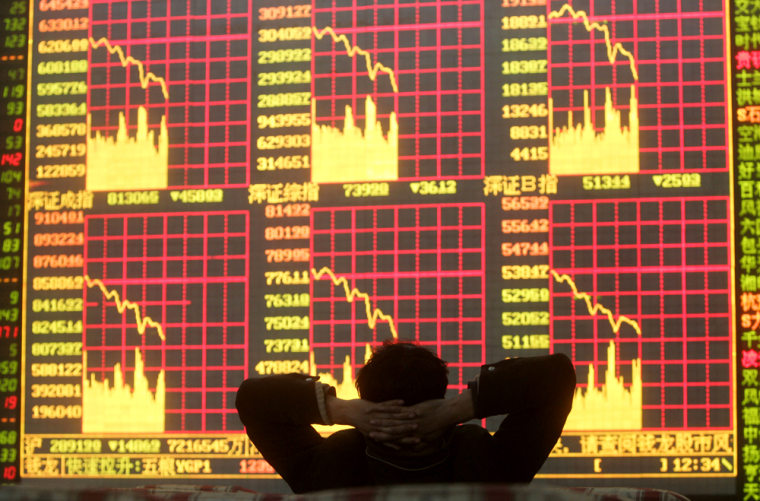Wall Street got a reality check this past week that U.S. investors remain vulnerable to global stock shocks.
Investors have been rolling along for nearly four years as major market indexes flexed toward record levels. Low volatility, a steady increase in stock value, and strong market fundamentals lulled investors into a false sense of security about their portfolios.
In fact, investors have for several years been able to shrug off recent emerging market volatility. As recently as January, there was little U.S. reaction when the Shanghai index notched one-day drops of 4.9 percent and 3.7 percent.
But all that changed with Tuesday’s 9 percent drop in China’s best-known index.
“This leaves us a little more vulnerable,” said Jack Ablin, chief economist for Harris Private Bank. “The markets are integrated, they’re global, and what we’ve come to learn is that a splash in China can create a tidal wave across the rest of the world.”
And, that tidal wave certainly pummeled U.S. investors on Tuesday when China’s downturn crossed borders. In the U.S., it came together with a weak government report on durable goods and on comments from former Federal Reserve Chairman Alan Greenspan about signals of a U.S. recession that rattled investors.
The once docile Dow Jones industrial average gasped — dropping as much as 546 points on Tuesday. Ablin, like other investors, said he was “surprised when it fell 250, and by 500 I was stunned.”
The correlation between global markets being more sensitive to each other, and a spike in volatility, becomes a double-edged sword for investors. It calls for them to take a new look at how much risk is in their portfolios, and how to diversify into safer positions — but also creates opportunity.
Hedge funds managers have been among the biggest sellers this past week since they normally pull back when the markets become more volatile. This helps broaden the playing field for other retail investors, and makes relatively cheaper markets more attractive.
Volker Dosch, head of U.S. equities for DWS Scudder Investments, said long-term investors stayed put as hedge funds bailed out of positions. He agrees this will create opportunity that gives retail investors a good entrance into the market.
Like others, Dosch said the choppiness of global markets now makes large-cap names — big multinational companies like the Dow stocks — more attractive. He believes the market could sharply rebound later this year if the Fed “makes it easier on us investors” by lowering interest rates.
“Once market participants really become convinced that the Fed is out of the way, then I think this should be good for the U.S. market,” he said. “Large-caps should have better performance because of increasing uncertainty, a slowdown in the U.S. economy. It all makes for a convincing argument for them.”
The fact Wall Street was thumped this week actually might have done many retail investors a favor. They had grown too used to fairly stable market conditions.
Until Tuesday’s correction, the broad Standard & Poor’s 500 index didn’t have a 2-percent correction in 121 sessions. The Dow had enjoyed 31 record high closes since the beginning of October, and the Nasdaq composite climbed to six-year highs.
Scanning around the globe, investors were enthusiastic about stellar returns coming out of Asia’s collection of stock markets last year. Chinese stocks alone lead the pack with a 130 percent surge, and markets in Indonesia, Malaysia, Japan and the Philippines weren’t that far behind.
“This was a wake-up call for a market that had become far too complacent,” said Thomas McManus, chief economist from Bank of America.
And it’s not just overseas stocks that are suddenly moving the market. On Friday, it was fluctuations in the Japanese yen that made Wall Street tremble — as the dollar fell against the yen, the Dow again headed lower, closing down more than 120 points.
Investors have finally emerged from the U.S.-focused cocoon they spun for themselves in recent years — and they don’t like what they’re seeing.
